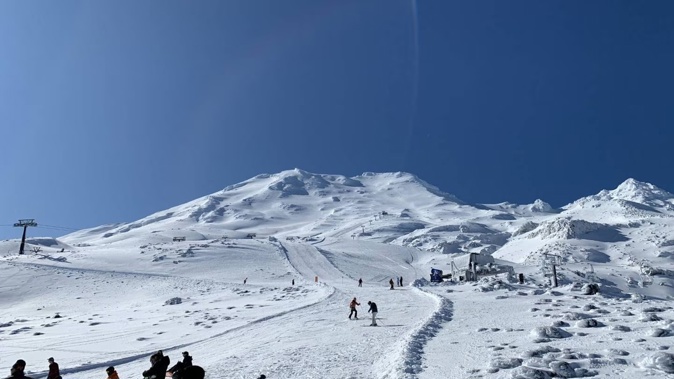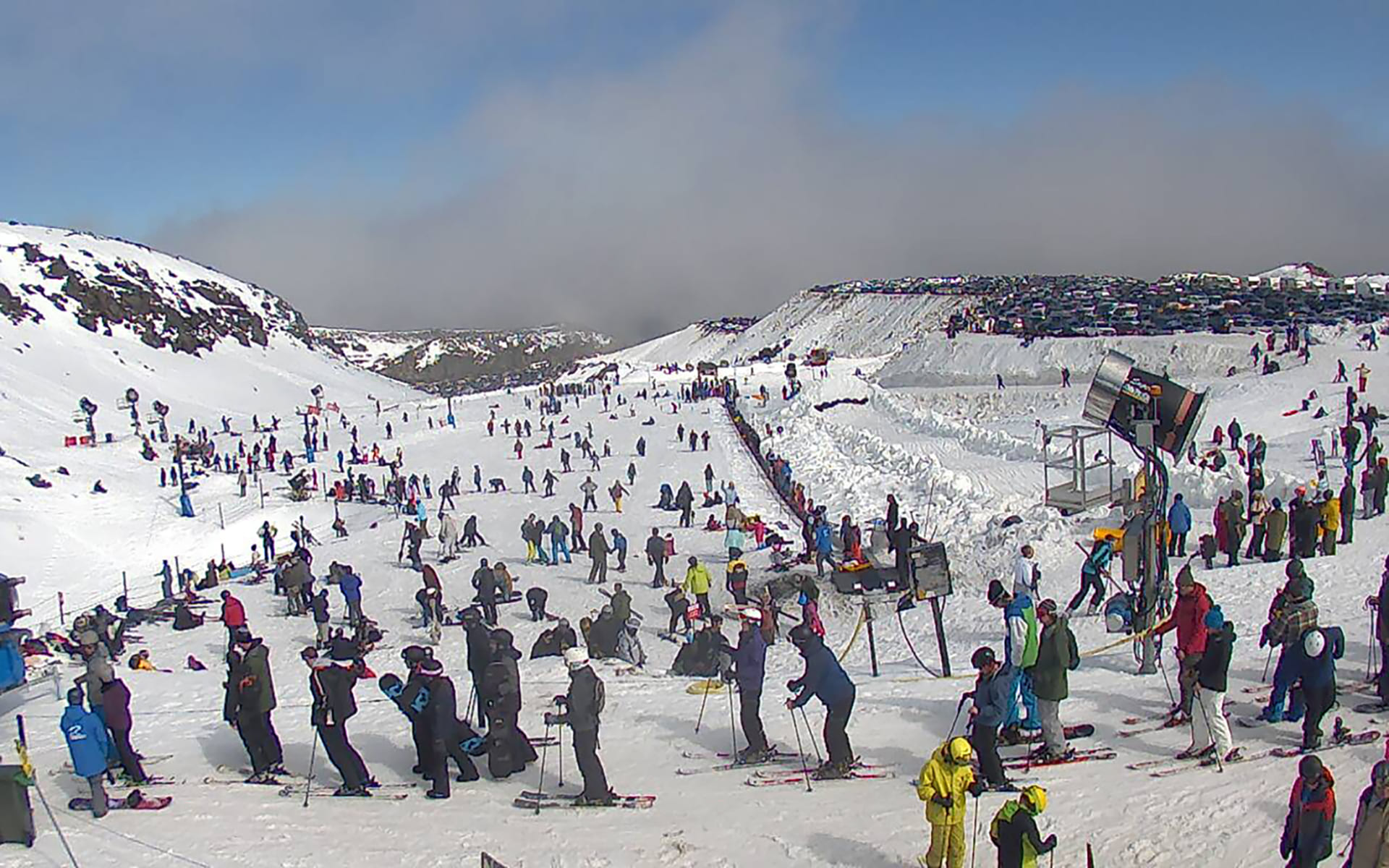
The company bidding for the financially distressed Tūroa ski field expects the sale and purchase agreement for the assets to be executed, “within the next couple of weeks.”
Pure Tūroa is the government’s preferred bidder, and its CEO, Greg Hickman, told ZB Plus that the company is now “working through the final documentation phase”.
Tūroa is one of two ski fields on Mount Ruapehu owned by the insolvent not-for-profit operator, Ruapehu Alpine Lifts (RAL). For the last 13-months its operations have been kept afloat with $17m of Crown money, none of which is expected to be repaid; a further $15m of Crown debt and convertible notes, which predate the company’s insolvency, are also likely to be written off.
In addition, it appears that the Crown has committed many millions more to sweeten the Pure Tūroa deal. Pure Tūroa is understood to be paying a face value purchase price of $1, though the terms of the evolving deal anticipate that its backers will make further investment in the ski field alongside the Crown.
The sale would be the first of two anticipated for the assets of RAL. Its ski fields – Tūroa and more particularly Whakapapa – are considered a lynch-pin for central North Island tourism. However, saddled with debt, much of which flowed from the government’s Provincial Growth Fund (PGF) in 2018 to help build a gondola, the company went into voluntary administration in October last year, and has been in liquidation since June.
RAL’s failure has frequently been blamed on three winter seasons of bad luck (2020, 2021, and 2022): two affected by the Covid pandemic and the third unseasonably warm. However, government documents make it clear the company was already in grave jeopardy in mid-2020, when it sought and received $5m of emergency funding.
Last week, the company’s main secured creditor, the Ministry of Business, Innovation and Employment (MBIE), placed RAL in receivership.
The taxpayer-funded provisions anticipated for Pure Tūroa include: a $3.05m note convertible to equity; two Crown loans, the first would be used to help pay RAL’s trade creditors and the second would provide working capital to Pure Tūroa; and, a “cost coverage” provision whereby MBIE would pay the company’s “off mountain” operating expenses in the event that a government concession to operate the ski field is delayed beyond February 2024.
The concession is an operating lease, and the Department of Conservation (DoC) cannot issue one to the new operator without first consulting iwi with interests in the area.
While Pure Tūroa expects the sale and purchase agreement to be executed shortly, its completion will take months and is dependent on DoC’s issuance of a concession.
The provisions are set out in an August 31 term sheet for the Tūroa aquisition, generated by Pure Tūroa for the attention of MBIE official Robert Pigau, head of the department”s regional development unit known as Kanoa (the successor of the PGF).
It was provided to ZB Plus confidentially, and some figures are redacted.
On the matter of the “DoC concession contingency” the document notes: “in the event the Concession assignment is delayed beyond February 2024 due to circumstances beyond PTL’s [Pure Tūroa Ltd] control, MBIE/Kanoa to provide cost coverage to PTL for PTL’s ‘off-mountain’ operating expenses on an ongoing monthly invoice basis until SPA Completion and the Concession is assigned to PTL.”
Hickman told ZB Plus: “‘the ‘Concession Contingency’ cost coverage referenced in the PTL Terms Sheet, we consider highly unlikely to eventuate. It is there to cover ongoing expenses that will be incurred if the acquisition is delayed beyond March next year. PTL is confident the acquisition will be settled prior to this time and is working closely with iwi, MBIE, the receivers and other stakeholders to make this happen.”
Hickman also emphasised that the second Crown loan facility, intended to provide working capital to the company, “is to be drawn only if cash flow requires, outside of other funding sources, and must be met equally by the other PTL [Pure Tūroa Ltd] shareholders (ie: for every dollar borrowed from the Crown, the other shareholders have to match it).”
The term sheet also anticipates that a Crown convertible note would be available for immediate drawdown on execution of the sale and purchase agreement, and allocated to the Pure Tūroa operating budget, covering the period between the sale and purchase agreement execution and completion.

The note is to be automatically converted to 25 per cent equity in Pure Tūroa on the sale completion; however, if it is not converted by 31 December 2024, the term sheet anticipates: “the convertable note will be cancelled with no further obligation to the issuer [Pure Tūroa].”
Hickman noted that, while Pure Tūroa “remains committed” to purchasing the ski field, “PTL does however become immediately liable for a number of significant capital and deferred maintenance costs going forward and needs to ensure it is well positioned financially to meet these costs.”
In addition to the term sheet provisions, it’s also understood that DoC will release Pure Tūroa from “make good” liabilities for returning the Tūroa ski field to a natural state – including a contingent clean up liability in the case of closure.
This has an estimated value of tens of millions of dollars, based on official estimates that previously put RAL’s exposure to this liability (across both of its ski fields) at $50m to $100m.
The anticipated DoC release would apply to all infrastructure and material on the ski field at the time of Pure Tūroa’s purchase.
On Wednesday, an MBIE spokesperson declined to answer specific questions about the term sheet and the Tūroa sale.
She did, however, point to a brief statement issued last week on the Crown appointment of receiver Calibre Partners.
“The purpose of placing the company into receivership is to provide time for decisions to be made on the future of RAL, in the interest of ensuring the best lasting outcome for these communities,” MBIE’s Pigou said.
The statement appears to be at odds with Hickman’s description of a sale that’s close to execution.
It’s possible that Pigou hopes to downplay any progress of the sale process during the current period of caretaker political oversight, when officials often pause significant decision-making where possible and wait for a new Government to be installed.
MBIE’s planned help for Pure Tūroa, an earlier version of which was made public at a key creditors meeting in June, have been criticised as overly generous, particularly by representatives of the Ruapehu Skifield Stakeholders Association (RSSA), a group dominated by skiers who hold life-passes for the ski fields.
In June, MBIE rejected a plan put forward by the RSSA which would have retained RAL’s company structure but changed its directors and governance. It would also have required considerable debt forgiveness by the Crown.
Official documents suggest that MBIE officials do not favour keeping RAL’s not-for-profit structure, because it has thwarted the company’s efforts to raise new, long-term capital (historically, the company has largely relied on the sale of life passes).
However, a plan that retained RAL as a corporate entity would also retain the company’s DoC issued concessions over the ski fields, eliminating the requirement to seek lease assignment, which may yet prove to be a very considerable expense.
The assignment of an operating lease to Pure Tūroa will require consultation of all local iwi with an interest in the area.
DoC’s director of planning and support Karl Beckert said the “concession process is complex and will most likely mean a publicly notified consultation as well as engagement with iwi. Statutory timeframes apply to these processes.”
Several iwi groups have already asked for the ski field sales process to be paused, and one group has threatened legal action.
Take your Radio, Podcasts and Music with you









